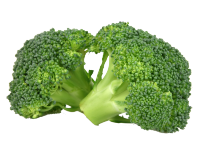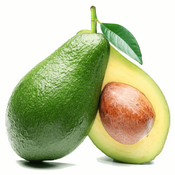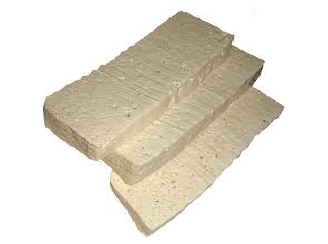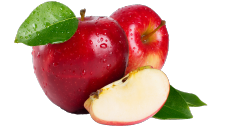Nutrition
It’s safe to say that all parents want for children to be happy and healthy.
 As we nourish their little souls each minute of each day during their childhood with our unconditional and endless love, we also strive to provide the best nourishment for their little tummies once they demand more than the breast milk or fist baby formula.
As we nourish their little souls each minute of each day during their childhood with our unconditional and endless love, we also strive to provide the best nourishment for their little tummies once they demand more than the breast milk or fist baby formula.
However unbelievable it might seem, your babies are not “mini you”. Their digestive system differs from yours in some essential ways. For example their stomach is much smaller, their small intestines are much shorter, and their detox functions are not fully turned on yet. Their immune system is very delicate.
There’s no doubt that the best nourishment for your babies during the first 6 months of their lives is breast milk or first baby formula if nursing is not possible.
When babies are going through the growth phase after 6 months, their bodies crave food that allows them to get maximum nutrition to promote proper growth. You can find a list on our website of some recommended foods that can be introduced at different stages of the weaning period. There are some crucial items you should consider during the development phases because if child is not equipped with right nutrition at the right time, it can cause some serious issues in the future. These in turn could adversely impact their overall body structure, brain function and their overall immune capabilities to fight against major infections and diseases.
As each baby is different, the best nutrients to help your baby gain the best health will vary according to several factors, do not hesitate to consult your pediatrician.
Here we have listed some of the crucial items that should be given to children no matter their age or development phase:
Calcium
Calcium is one of the most crucial elements for your baby’s growth.
Calcium helps with the proper growth of the bones and increases the strength of baby’s teeth, which allows them to chew food better during the weaning process.
While most people link calcium with dairy, there are many other sources to include in the diet. Getting a variety of calcium-rich foods can also expand the amount of other nutrients consumed.Foods rich in calcium:
- Dairy (no milk for babies under 1 year), yogurt, cheese
- Kale, broccoli, collards, chinese cabbage
- Canned salmon, canned bone-in sardines, almonds, brazil nuts, sunflower seeds, tahini, beans
- Fortified whole grain cereal, orange juice, non-dairy beverages such as soy and almond milk, tofu
 Fat
Fat
Fats are essential in your child’s diet, especially healthy fats. They help energy gain, proper brain and cell development, keep the skin healthy, protect it against infections and are crucial for vitamin absorption (especially for absorbing vitamins A, D, E, and K).
And which foods contain healthy fats?
Iron is another important item that children should have when they hit growing age.
- Avocado
- Whole eggs
- Oils (olive, coconut, avocado)
- Nuts and seeds
- Whole milk yogurt
 Iron
Iron
Iron is another important item that children should have when they hit growing age.Based on the latest research, at about 6 months of age babies start needing iron and by the time babies are 7 months old, they require more iron than an adult male. Iron deficiency is the most common deficiency in babies and toddlers.
Iron helps in the development of cells and promotes proper brain development.
Iron helps in the development of cells and promotes proper brain development.
Best sources of iron:
- Meat – beef, lamb, veal, chicken, turkey
- Iron fortified infant cereal
- Fish
- Tofu
- Beans, lentils and other legumes
- Egg yolk
Please note also, that when you give a non-meat source of iron, also give food rich in vitamin C. This will help your baby absorb more iron.
 Proteins
Proteins
Along with energy, a baby’s body needs to build up its muscular strength as well. The development of cells depends heavily on protein, which also sharpen brain function and increase strength through new skin and muscle growth.Main sources – beans and lentils, meat, yogurt, tofu, fish.
 Carbohydrates
Carbohydrates
Carbohydrates are a staple in our diet and the quantity should be maintained according to the body needs of the child.They are an infant’s main fuel source, and essential for proper growth and development.
Sources of carbohydrates for infants older than 6 months of age Sources of carbohydrates for infants older than 6 months of age include strained or soft fruits, strained or cooked vegetables, infant cereals, whole-milk yogurt, cooked or strained legumes, crackers, cooked pasta and toast.
Vitamin D
This vitamin helps the body absorb minerals like calcium, and also to build strong teeth and bones. Vitamin D deficiency can not only cause rickets, but it can also keep a child from reaching their genetically programmed height and peak bone mass. Vitamin D has many other jobs in the body, including regulation of the immune system, insulin production, and cell growth.
The best and recommended way to get enough vitamin D for your baby is to give them a vitamin D supplement.
Zinc
This element is quite essential for children of all ages. Right from birth to when children are a few years old, the requirement of zinc stays more or less consistent throughout. Zinc improves immunity and supports vital internal processes such as nervous development and reproductive growth.Peanuts and cereals with fortified zinc can be excellent choices, along with soybeans and red meat products.
 Magnesium
Magnesium
Magnesium is essential in keeping internal organs working properly. Once a child is 6 months old, his magnesium requirement is more than twice what was needed earlier. Magnesium helps streamline nerve signals between various parts of the body and maintain heartbeat at an optimal pace.Sources - soybeans and almonds, along with kiwi and bananas.
Potassium
Potassium is heavily required in kids once they start growing up, especially when they are more than a year old. One of its vital roles is retaining optimum water levels within the body’s various parts and keeping all functions stable.Good quantities of potassium can be found in numerous fruits and green vegetables and tomatoes.
Other vitamins and Minerals
There are a number of other vitamins that play important roles in promoting the health of your baby. Vitamin A helps in keep hair, vision and immune system in top condition. Also, vitamin B1, B2, B3, B6 and Vitamin C are needed. Some of the vitamins work as the absorbers for other nutrients. For instance, Vitamin C helps with the absorption of calcium and to keep muscles strengthened.You should always remember that the health of your child is more important than anything else. Therefore, you should always try to equip them with the food rich in the nutrients that will build their strength, charging them with energy and make them develop at a healthier rate.
Please consider this guide as an indication only. If in doubt, ask your pediatrician for advice on menus adapted to your baby!



